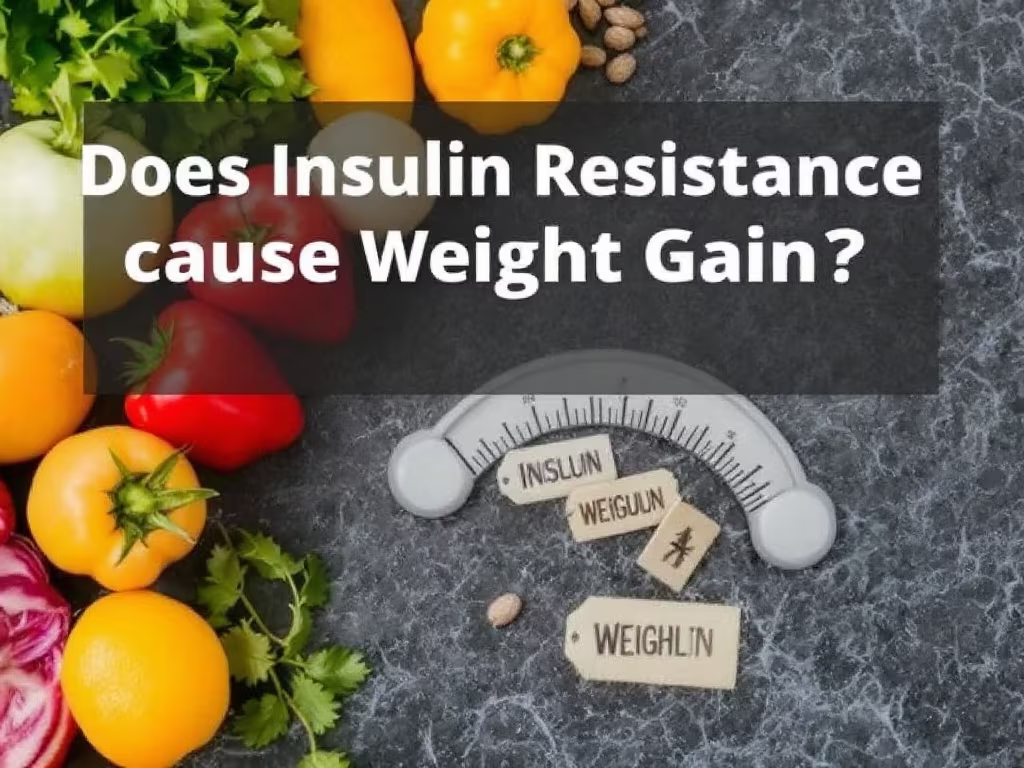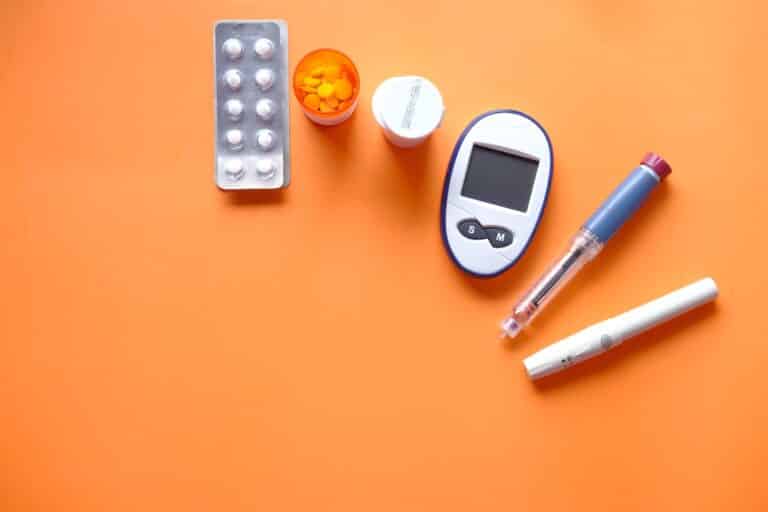Does Insulin Resistance Cause Weight Gain? Guide
Does insulin resistance cause weight gain? If you have been asking yourself this question, you are not alone. Insulin resistance often goes hand in hand with weight gain—especially around the belly area—and can set the stage for prediabetes and type 2 diabetes if not addressed. Below, you will learn what insulin resistance is, why it may contribute to extra pounds, and how you can take steps toward healthier living.
What is Insulin Resistance?
Insulin is a hormone that helps move sugar from your bloodstream into your cells for energy. When you are insulin-resistant, your cells do not respond to insulin as effectively, leading your pancreas to produce more insulin in an attempt to keep blood sugar levels under control. Over time, these elevated insulin levels can lead to increased hunger and cravings for sugary foods, which may encourage weight gain (Scripps Health).
Insulin resistance sets the stage for:
- Elevated blood glucose (hyperglycemia)
- Prediabetes and type 2 diabetes
- Higher insulin production, which can disrupt normal hunger signals
Explore Weight Complexity
When your body is producing excess insulin, it may store more fat, often around your belly. This creates a vicious cycle—gaining more weight can worsen insulin resistance, and worsening insulin resistance contributes to greater weight gain (Baptist Health South Florida). You might also notice that shedding pounds becomes tougher because your body keeps sending signals to replenish energy stores.
Here are a few factors to keep in mind:
- Too many refined carbs and sugary foods can increase insulin production
- Lack of exercise can reduce your cells’ ability to respond well to insulin
- Chronic stress may raise cortisol levels, which can also affect insulin sensitivity
If you are taking insulin for diabetes management, you may also want to learn more about average weight gain on insulin to see typical experiences and potential solutions.
Factors That Influence Insulin Resistance
Lifestyle behaviors like poor diet and sedentary habits are top contributors to insulin resistance (Cleveland Clinic). However, other risks include:
- Family history of insulin resistance or diabetes
- Chronic use of steroids or certain medications
- Obesity or excess belly fat
- Polycystic ovary syndrome (PCOS) in women
Since insulin resistance can appear a decade or more before type 2 diabetes develops, identifying these risk factors early can be a huge advantage.
Spot The Warning Signs
Many individuals with insulin resistance do not realize they have it until prediabetes or type 2 diabetes sets in. You might still notice certain clues, including:
- Weight gain around your waistline
- Increased hunger and constant cravings
- Fatigue even after plenty of rest
- Skin tags or patches of dark, velvety skin (acanthosis nigricans)
If you take insulin injections, you might ask yourself, “Does insulin make you gain weight?” Learning more about why this happens can help you manage your concerns proactively. Check out does insulin make you gain weight for deeper insights.
Break The Cycle
While insulin resistance can be frustrating, it is not permanent. Several lifestyle modifications can help reverse insulin resistance and bring your body back into balance:
Adopt A Balanced Diet
- Focus on nutrient-dense foods like vegetables, lean proteins, and whole grains
- Reduce refined sugars and highly processed foods
- Consider a low-carb approach to stabilize blood sugar levels (NCBI Bookshelf)
Move Regularly
- Incorporate at least 30 minutes of moderate exercise most days of the week
- Include strength training to build muscle, which helps improve insulin sensitivity
Manage Stress
- Practice relaxation techniques, such as yoga or meditation
- Aim for consistent, high-quality sleep to support hormonal balance
Monitor Weight And Health Indicators
- Keep an eye on waist circumference
- Schedule regular checkups and blood tests to track glucose and lipid levels
Even modest weight loss can improve insulin sensitivity, lower blood glucose levels, and reduce your risk of developing type 2 diabetes (Mayo Clinic).
Conclusion
By asking, “Does insulin resistance cause weight gain?” you are already on the path to taking control of your health. Making gradual yet consistent lifestyle changes can go a long way in reversing insulin resistance, stabilizing your weight, and supporting overall well-being. If you suspect insulin resistance or need personalized advice, contact a healthcare professional to create a tailored plan for you.








Leave a Reply